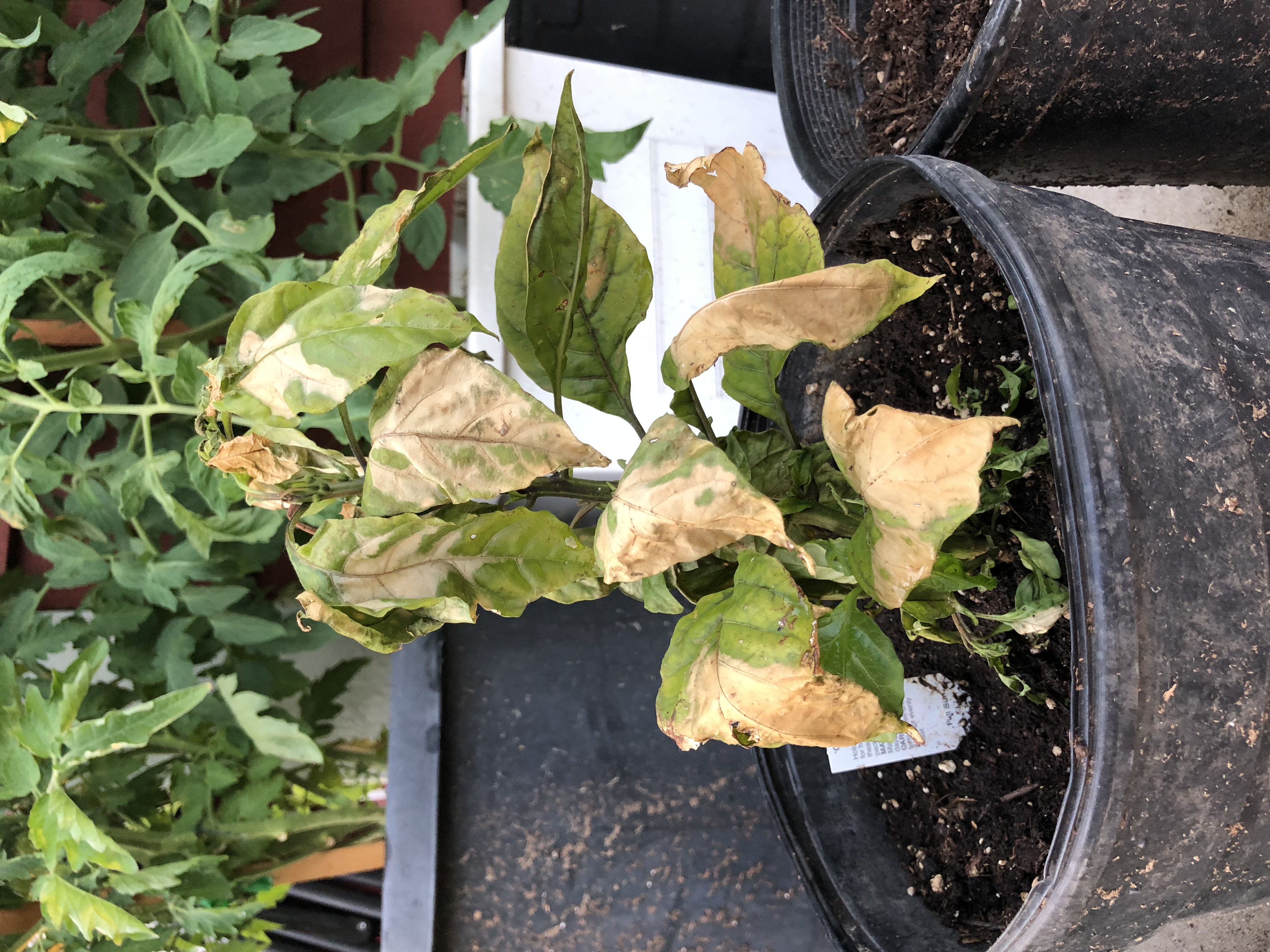Best Fertilizers for Peppers: Make Best Use Of Plant Health and Yield
Best Fertilizers for Peppers: Make Best Use Of Plant Health and Yield
Blog Article
Organic Vs. Synthetic Fertilizers: Which Is Best for Supporting Healthy And Balanced Pepper Plants?
In the realm of supporting healthy pepper plants, the option in between organic and artificial plant foods stands as a crucial decision with significant ramifications. While both alternatives objective to give essential nutrients to support plant development, the nuances of their effect on the dirt, plant health, and the atmosphere trigger an argument that mirrors throughout the gardening area. Comprehending the unique benefits and possible challenges of each fertilizer type is vital for pepper farmers seeking to enhance their returns while keeping a sustainable and eco-conscious strategy.
Benefits of Organic Fertilizers
Organic fertilizers provide an environmentally-friendly and lasting method to nourishing pepper plants, supplying essential nutrients without making use of synthetic chemicals. These natural plant foods are originated from natural sources such as compost, manure, bone dish, and algae, advertising dirt health and biodiversity. Unlike artificial plant foods, organic alternatives release nutrients gradually, making certain a stable and well balanced supply for pepper plants to prosper.
One considerable benefit of organic fertilizers is their capability to improve dirt structure and water retention. By boosting soil wellness, organic fertilizers promote helpful microbial activity, which aids in nutrient uptake by pepper plants. Additionally, natural plant foods decrease the threat of chemical run-off, securing water sources from air pollution and guarding the environment.
In addition, organic fertilizers add to lasting dirt fertility by advertising the development of advantageous soil organisms. These organisms aid break down raw material, releasing nutrients in a kind that is conveniently obtainable to pepper plants. best fertilizers for peppers. By fostering a healthy soil community, organic fertilizers sustain lasting pepper cultivation practices that benefit both plants and the atmosphere
Disadvantages of Synthetic Plant Foods
Artificial plant foods, in comparison to their organic equivalents, present numerous negative aspects when used to nurture pepper plants, affecting both plant health and environmental sustainability. One significant downside of synthetic plant foods is their tendency to seep nutrients from the soil quickly.
Moreover, the overuse of synthetic fertilizers can add to water air pollution. Excess plant foods not soaked up by plants can wash away right into water bodies, bring about eutrophication, where algae blooms diminish oxygen levels in the water, hurting marine life. Moreover, synthetic plant foods are usually stemmed from non-renewable resources, such as nonrenewable fuel sources, adding to carbon discharges and ecological deterioration throughout their production.
Nutrient Absorption Comparison
When comparing organic and artificial fertilizers in terms of nutrient absorption, natural fertilizers have the benefit of offering a much more balanced and slow-release resource of nutrients. Organic fertilizers have a range of macro and trace elements that are not just beneficial for the plants however additionally advertise healthy and balanced dirt microbial activity, which helps in nutrient uptake.
Furthermore, natural plant foods boost soil structure and water retention capability, enabling pepper plants to accessibility nutrients extra effectively. This enhanced soil high quality assists in origin growth, allowing much better nutrient absorption. Synthetic fertilizers, although originally improving plant growth as a result of their high nutrient concentrations, content may hinder long-lasting nutrient absorption by degrading soil wellness over time.
Ecological Effect Factors To Consider

On the various other hand, artificial fertilizers, although often even more promptly readily available and focused to plants, can have destructive effects on the environment otherwise applied correctly (best fertilizers for peppers). Their production requires high energy inputs, resulting in greenhouse gas emissions and adding to environment adjustment. The overflow of excess artificial fertilizers can pollute water sources, leading to eutrophication and damaging water environments.
Best Plant Food Practices for Peppers
When fertilizing pepper plants, enhancing nutrient uptake and reducing ecological influence are crucial considerations. To accomplish this, additional info it is important to comply with finest plant food methods customized to the certain requirements of pepper plants. One critical method is to carry out a soil examination prior to using any plant foods. This test can establish the pH level of the soil and identify any type of nutrient deficiencies, guiding you in selecting one of the most appropriate fertilizer solution.
An additional essential practice is to feed pepper plants at the appropriate time. Typically, peppers take advantage of receiving plant food at growing and after that once again when they start to flower. Over-fertilizing can result in nutrition discrepancies and hurt the plants, so it is essential to follow recommended application prices.
Additionally, choosing a balanced fertilizer with an NPK ratio that matches pepper plants' needs is essential. Organic fertilizers, such as compost or manure, can be exceptional options as they launch nutrients gradually and improve dirt structure over time. However, synthetic plant foods can give a quick nutrient boost when needed. Eventually, incorporating natural and artificial fertilizers sensibly can help support healthy and balanced pepper plants while decreasing ecological effect.
Verdict

Organic fertilizers provide an environmentally-friendly and lasting approach to beneficial pepper plants, providing crucial nutrients without the use of synthetic chemicals. Unlike synthetic fertilizers, natural alternatives launch nutrients gradually, making certain a well balanced and steady supply for pepper plants to flourish.
Synthetic fertilizers, in contrast to their organic equivalents, present different disadvantages when used to nourish pepper plants, impacting both plant wellness and environmental sustainability. When comparing natural and artificial fertilizers in terms of nutrient absorption, organic fertilizers have the advantage of supplying a more well balanced and slow-release source of nutrients.Moreover, organic fertilizers enhance soil discover this info here framework and water retention capacity, enabling pepper plants to accessibility nutrients a lot more effectively.
Report this page